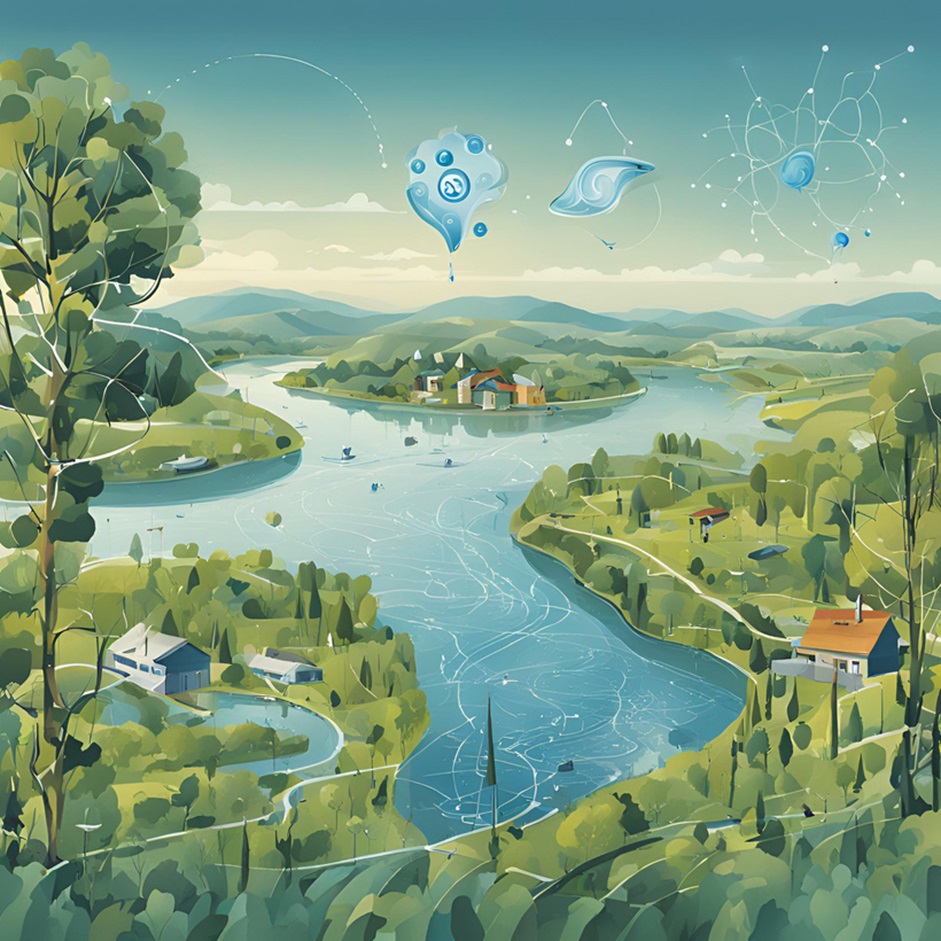"Internet of Water" is marketed through AIoT4All, a Tec de Monterrey startup focused on developing IoT products with artificial intelligence.
The interchangeable sensors can measure a wide range of parameters and variables in freshwater bodies.
The project originated with the goal of monitoring Rio Grande de Santiago, a river in Jalisco, known for being the most polluted in Mexico.
ZAPOPAN, MEXICO / ACCESSWIRE / November 29, 2024 / The Center for Innovation, Technological Development, and Applications in the Internet of Things (CIIoT) at Tec de Monterrey, Mexico's top university in engineering and technology according to the QS World Ranking 2025, has developed "Internet of Water," a technology platform based on IoT (Internet of Things) that monitors water quality in rivers, lakes, lagoons, and streams by measuring contaminant levels.

Investigations and projects carried out by the Tec de Monterrey's CIIoT are highly relevant due to Mexico's severe water pollution issues: 60% of potable water is contaminated. According to the National Network for Water Quality Measurement (RENAMECA), 59.1% of surface water bodies such as rivers, streams, lakes, and coastal areas present some level of pollution, while only 40.9% meet quality standards that ensure effective access to potable water.
The CIIoT has integrated into "Internet of Water" sensors specifically designed to measure various substances in water, making it a sophisticated monitoring system with a LoRa communication gateway that sends data to antennas for transmission to a database, solar panels that power low-energy lithium batteries, and buoys that keep the device afloat.
Currently, "Internet of Water" is marketed through AIoT4All, a Tec de Monterrey startup focused on developing IoT products with artificial intelligence. The university has contributed seed capital funding and provides research and operational spaces. The specialized team was developed with funds from ITESM and the Government of the State of Jalisco.
According to Alfredo Figarola, these developments are now at level 7 on the TRL scale (Technology Readiness Level), meaning that the technology has been tested in real-world environments and is ready for commercialization.
"This floating platform features sensors that measure various parameters to determine water quality, currently evaluating 25 parameters with eight different variables," explained Alfredo Figarola, professor at Tec de Monterrey's Guadalajara Campus and leader of the CIIoT. The sensors analyze parameters such as dissolved oxygen, turbidity, pH, temperature, dissolved solids, and conductivity, as well as pollutants like lead, cadmium, phosphates, and values such as chemical oxygen demand (COD) and biological oxygen demand (BOD), among many others.
The platform can also detect deviations in a river's flow or illegal water extraction in lakes and springs. Moreover, it can identify illegal wastewater discharges. "IoT technology enables continuous monitoring, and when a variation is detected, warnings are issued to prompt necessary action," said Figarola.
"Internet of Water" has extended its reach to a growing number of environments, including water treatment plants, aquaculture farms, etc. This solution is a clear example of Tec de Monterrey's commitment to research and technological innovation, as well as to preserving vital resources like water.
Contact Information
Lorena Leño
PR Agency
lorena@thanksagency.com
52 55 2755 5556
Source: AIoT4All at Escuela de Ingeniería y Ciencias of Tec de Monterrey













